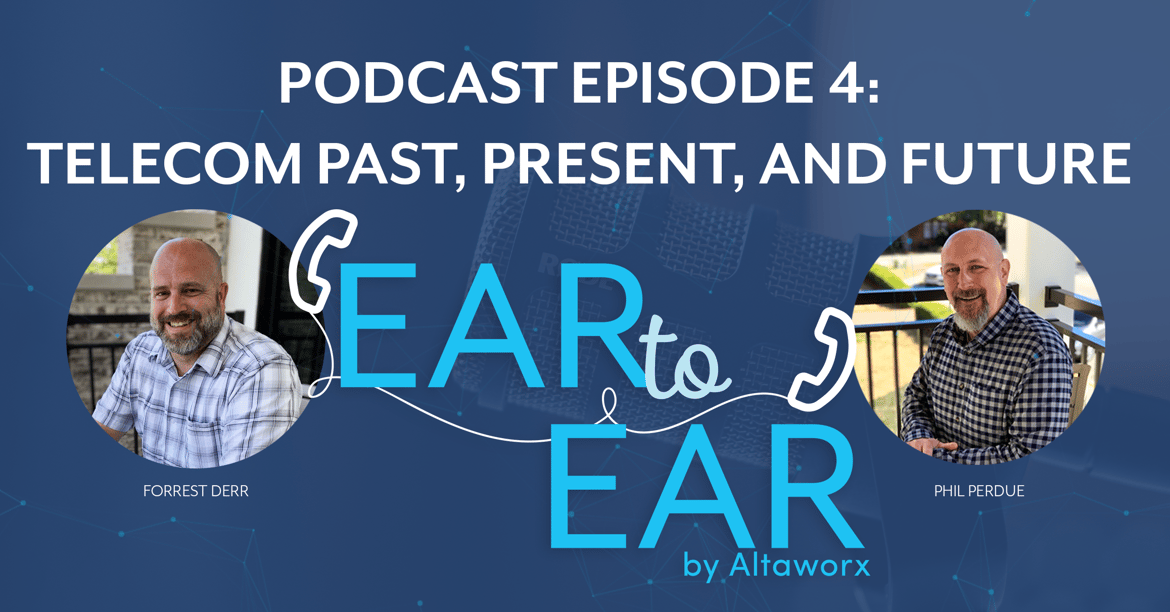Ear To Ear Podcast | EPISODE 4: Telecom Past, Present, and Future with Phil Perdue
We're back with another Ear to Ear by Altaworx podcast.
By Altaworx Marketing
Share
Dial into episode 4 where Forrest and Phil discuse how Telecom has change over the years including the following topics:
-What are the main challenges for telecom?
-What are the latest trends and technology in telecom?
-What is the future of the telecom industry?
Learn more: www.altaworx.com
Contact us: sales@altaworx.com
Connect with Phil Perdue on LinkedIn
Connect with Forrest Derr on LinkedIn
No video selected
Select a video type in the sidebar.































